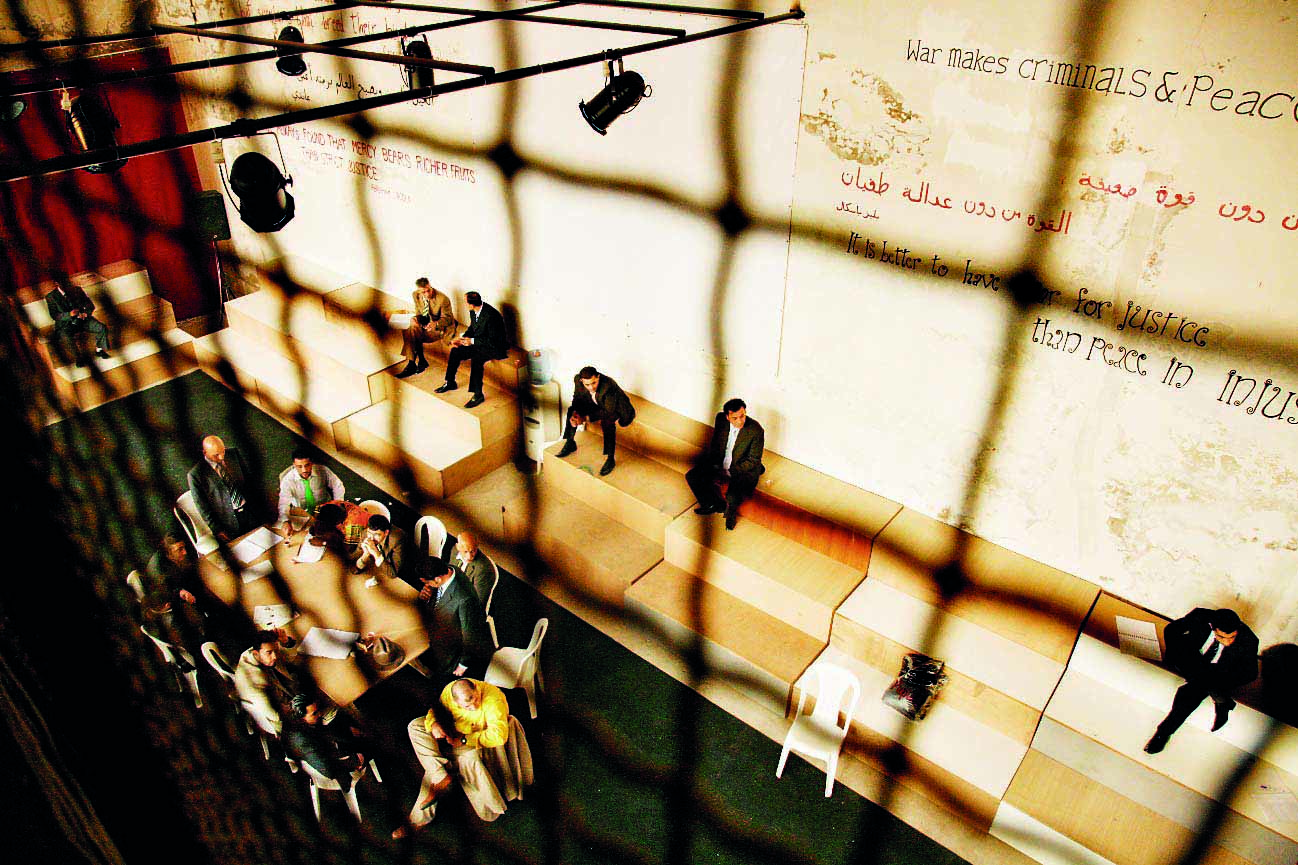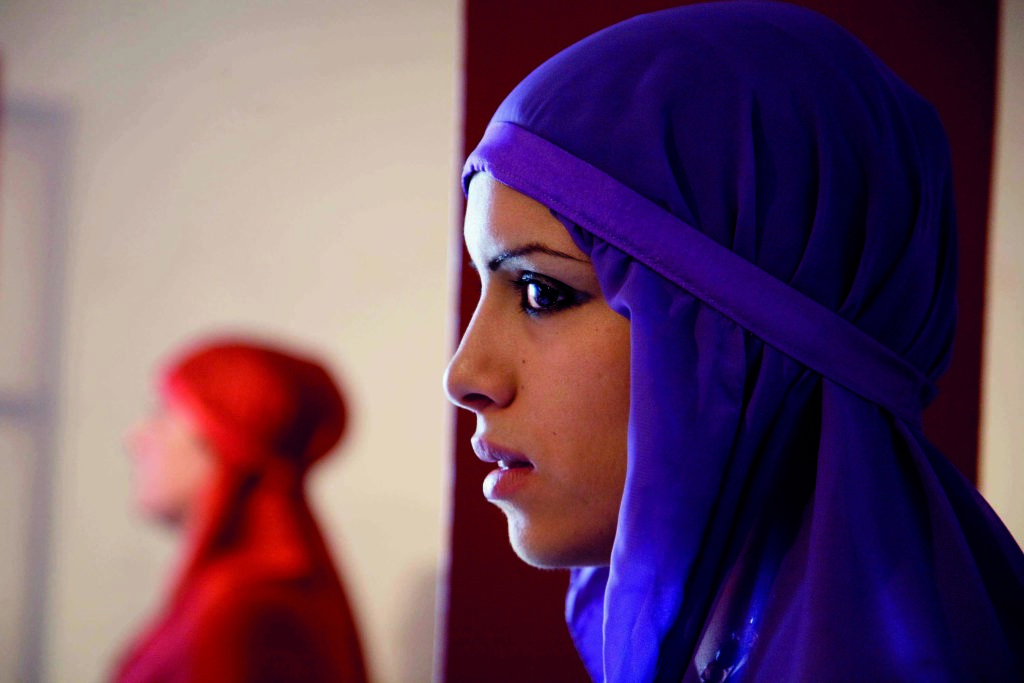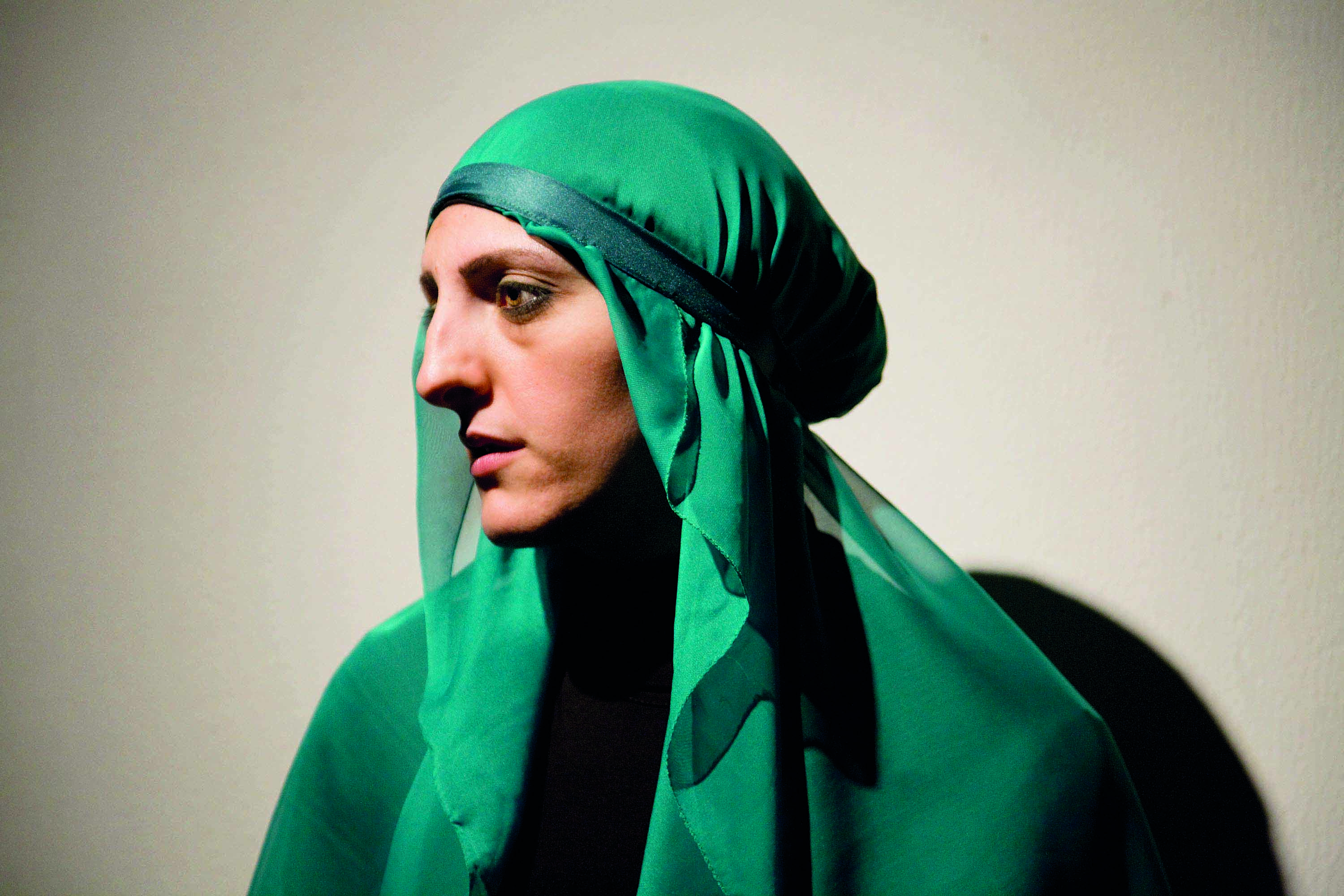Many of us write off prison inmates as society’s outcasts, but Zeina Daccache sees individuals who need help and tries to give them a voice.
Iron bars may imprison a person’s body but not necessarily their thoughts and creativity. Thoughts remain the property of the mind. Even notorious prisons like Roumieh or Baabda cannot lock up a person’s ideas. Every inmate, regardless of their conviction, has a story to tell when given the chance. Thanks to Zeina Daccache’s drama therapy projects, prisoners were given a voice to express themselves and deliver a message that was once strangled by prison dust.
“We are all prisoners of our thoughts and it takes us sometimes a lifetime to understand that it’s all about fear, and fear is not real,” says Zeina Daccache, an actor, director, drama therapist and executive director of Catharsis, a group who do drama workshops with prisoners. Catharsis works with disadvantaged people such as substance abusers, survivors of trauma and other negative experiences, as well as prisoners.
“We are all prisoners of our thoughts”
Drama therapy
Drama therapy has proven that even prisoners are able to deliver beauty. Such therapy is different than talkative therapy, it involves tools such as drawing, role play, and using the imagination for performing. It also involves the body to help a person express his emotions and reflect his painful experiences. Combining drama techniques with psychotherapy constitutes the keystone for drama therapy.
“Some people don’t talk easily and therefore talkative therapy doesn’t suit them, whereas drama therapy helps a lot in expressing emotions and making meaning,” says Daccache.
“Drama therapy helps a lot in expressing emotions and making meaning.”
Drama therapy Plays inside prison
A play inside a Lebanese prison might seem like a crazy idea but Daccache is convinced by her creativity and belief that theater has the ability to challenge limitations and achieve greater goals. Her experience with Armando Punzo, an Italian theater director who does plays in Voltera Prison, inspired her to bring the idea home. But this decision wasn’t easy.
“It’s a different planet inside prison, so the difficulties laid mostly in the setting: you are inside a prison where all governmental rules and regulations have to be respected. There is a lot of bureaucracy,” explains Daccache.
“I get inspired by inmates, it’s their play, not mine. It is their message not ours. They benefited a lot on a personal and policy level,” asserts Dacccache.
This was just the beginning. Catharsis, the Lebanese center for drama therapy established in 2007, is preparing a new play and documentary inside Roumieh prison in a project funded by the EU.
“Some of the participants in this project are inmates with life sentences or facing the death penalty. Others are mentally ill inmates who suffer at the hands of a law that seems to lead them to life sentence too, as they have to ‘stay inside prison until cured’ which is not possible,” says Daccache.
“The project shall lead to a new draft law for both groups: those with life sentences and the mentally ill,” she adds.
Zeina’s experience in prison was not easy and she faced endless problems along the way. One actor didn’t know how to read so they had to secure a permit to provide him an mp3 player with his lines on it recorded by other prisoners. This actor was then diagnosed with cancer and died, a tragedy for Zeina and other inmates. There were occasional fights between inmates and, to top it off, the theatre room was set on fire after a riot in Block D. These were just some of the problems Zeina faced but nothing could stop her from fighting to overcome these difficulties.
“After this experience you learn a lot. Patience … then patience and then patience.” Daccache concludes.


Performances by prisoners:
The first was “12 Angry Lebanese” (2009) performed by Roumieh inmates.
The play actually led to the implementation of an early release law. “Scheherazade’s Diary” (2013), performed by female inmates from Baabda, was a play based on prisoners’ personal stories and shed light on the oppression that women face in Lebanon. The monologues were influenced by prisoners’ experiences and were performed to the audience with no barriers or iron bars in between.
The theater room in block D was set on fire during a prison riot.
“After this experience you learn a lot. Patience, then patience and then patience.”



































